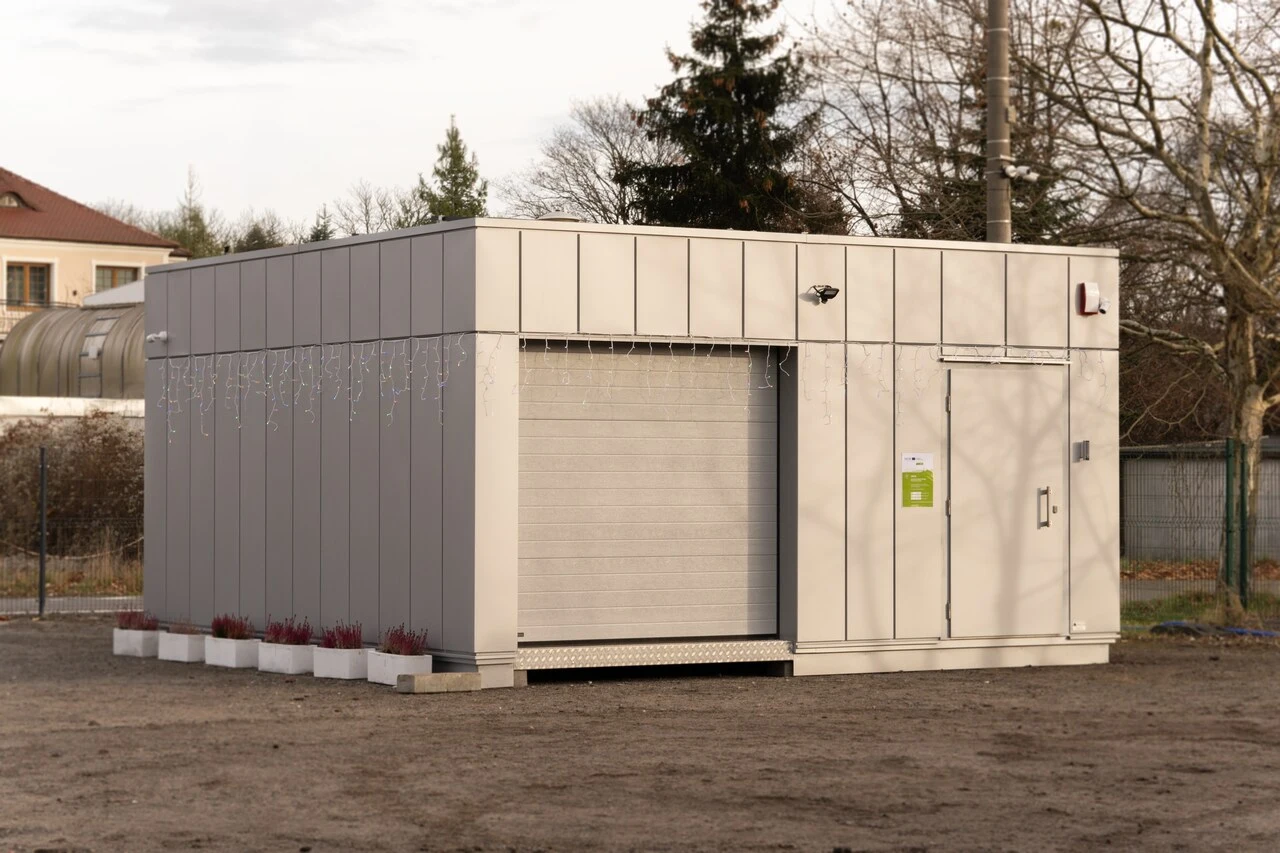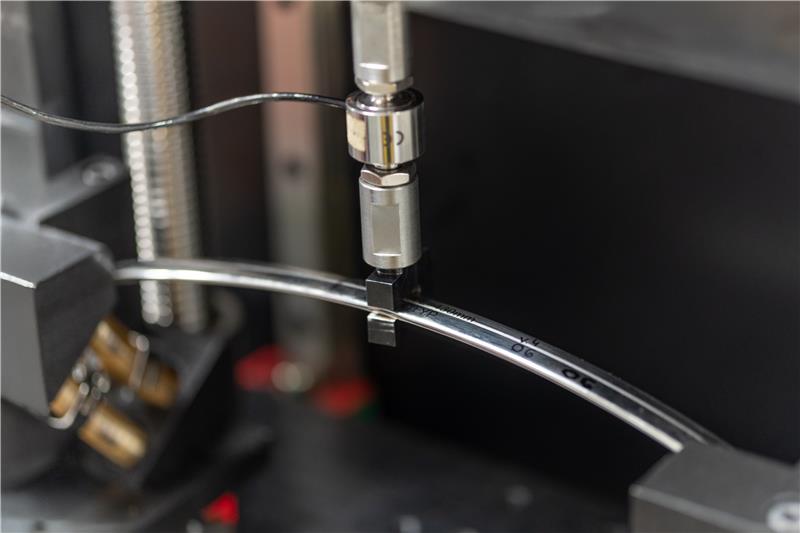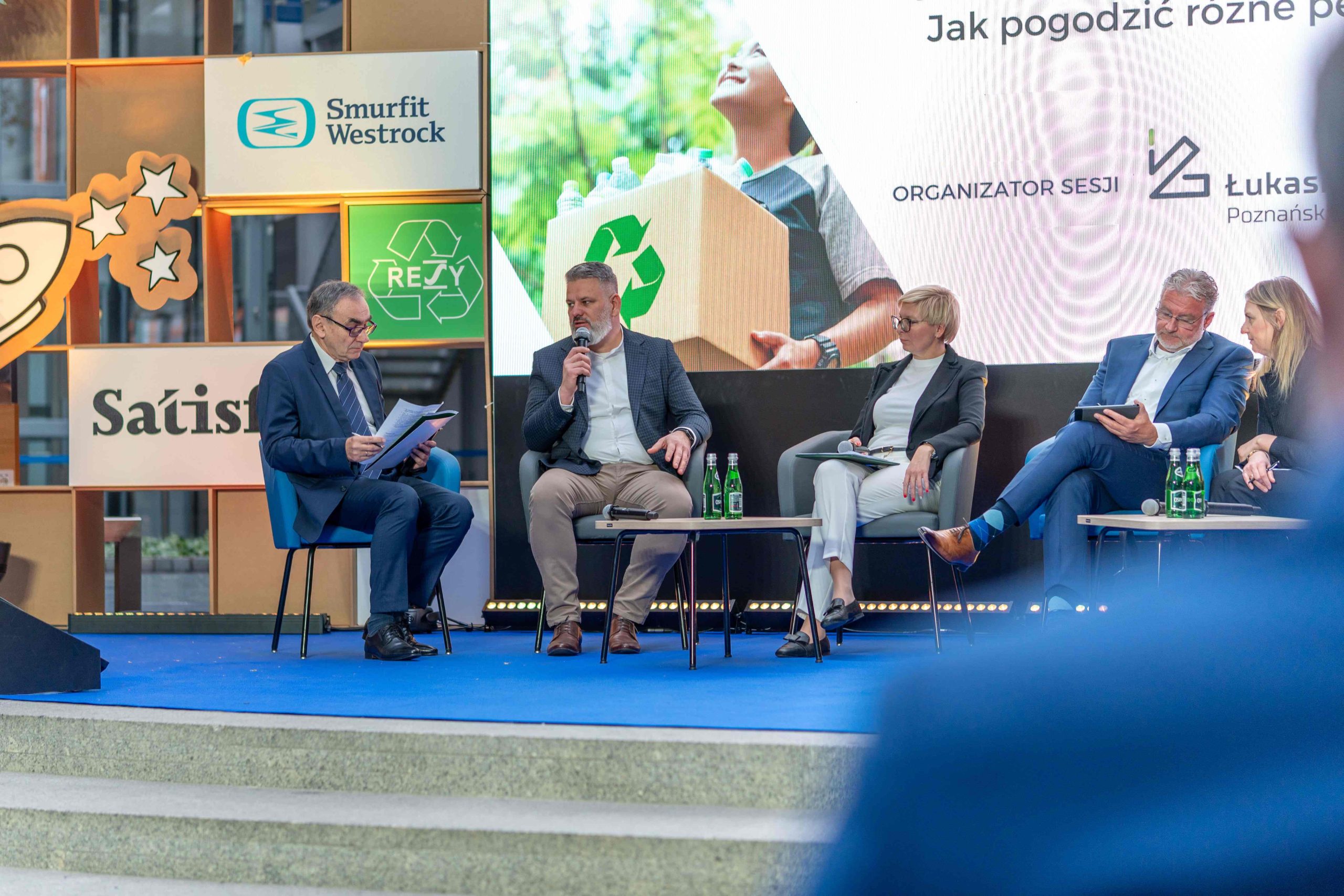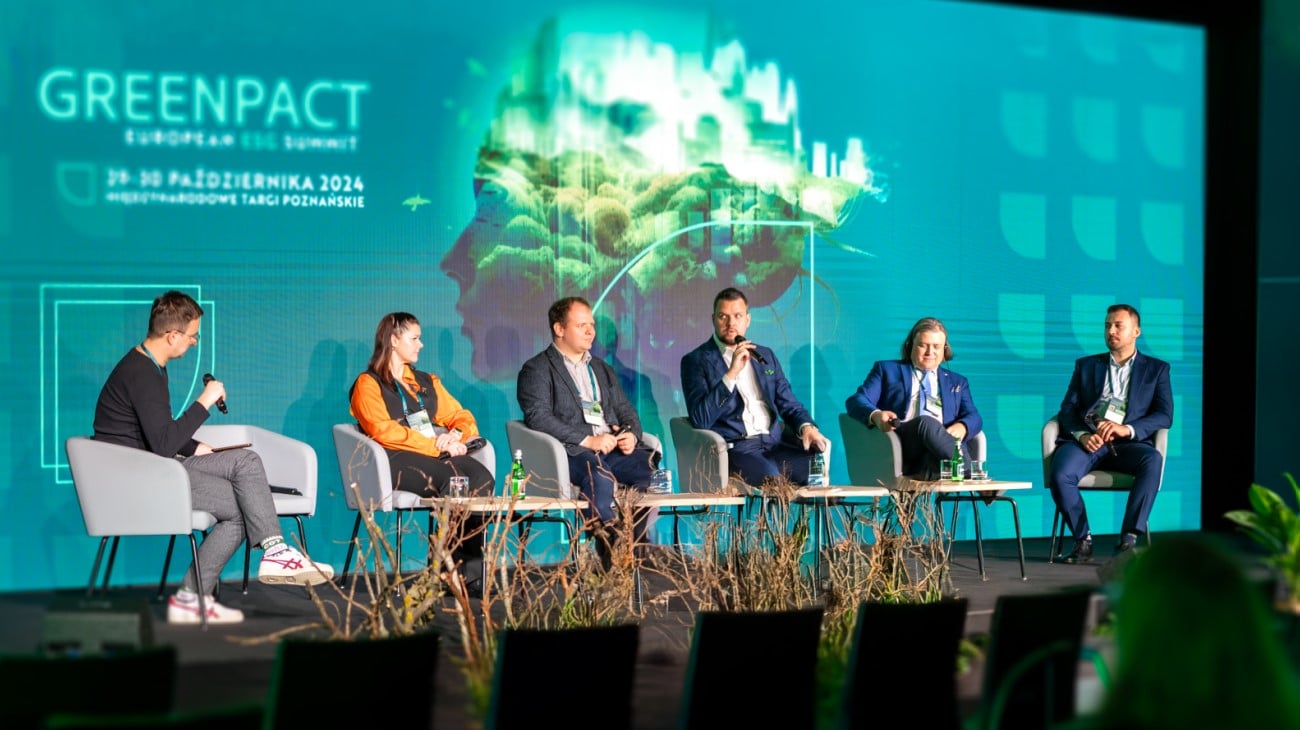Courier revolution in Poznań

Poland’s first freestanding transhipment microhub has been operating since December in Poznań. It is a place from which bicycle couriers will pick up parcels brought by car. This pilot project will last until spring.
The microhub was developed as part of the GRETA research project carried out by Łukasiewicz – Poznań Institute of Technology together with partners from six EU countries. Its aim is to test eco-friendly solutions for urban freight transport. In Poznań, the test includes a transhipment microhub, which was constructed on Pułaskiego Street. It is located out of the way, but in a well-connected place.
It is a purpose-built small building, made of recycled materials, powered by photovoltaic panels and equipped accordingly. Four electric cargo bikes are stationed there.
How does it work?
Parcels from the logistics centre are brought to the microhub by vans. At the hub, parcels are transshipped onto bicycles and further delivered to recipients in the central districts of Poznań. One bicycle takes about 40-45 small parcels (which account for half of all shipments) and can cover a distance of 15 to 20 km.
– While cargo bicycles are already being used by courier companies and loading bays in various forms are also beginning to operate in Polish cities, we still do not have concrete data to confirm whether this is an ecological and economical solution. The GRETA project and the ongoing pilot are supposed to provide us with them. After its completion, we will know how many parcels will be delivered by a courier on a bicycle, in what time, what will be the carbon footprint of these deliveries,’ explains Marta Cudziło, deputy director of the Centre for Modern Mobility at Łukasiewicz – PIT, coordinator of the project in Poland.
The last stage of delivery, i.e. getting the parcel to the customer, is the most costly and least ecological. Courier companies have long been implementing solutions to make the so-called last mile less carbon-intensive.
– GLS aims to achieve zero carbon by 2045 with. One way of achieving this is through the introduction of electric courier bikes. In 2020, we launched a pilot programme in Kraków, and two years later two more GLS Poland courier bikes hit the streets of Poznań. There are now 16 bikes on the streets of Poland, which are perfect for crowded city centres and Clean Transport Zones. The bicycles easily navigate narrow streets, avoid traffic jams and always find a parking space, while the couriers driving them efficiently deliver parcels to our customers, says Andrzej Wasielewski, Director of Domestic Operations and Infrastructure at GLS Poland.
Green mile
The cargo bike, although slightly larger than a classic unicycle (as it has a box for deliveries), is more agile in urban traffic than a courier van. The cyclist can more easily find a parking space without blocking the pavement or the lane with his vehicle.
– The City of Poznań supports activities, which contribute to the reduction of the number of combustion vehicles – emitting harmful substances – in the city centre, promote zero emission delivery solutions and improve air quality. The use of cargo bicycles is a step towards reducing car traffic in the city centre, among other things, and the experience from the project will be used in the future to more effectively plan solutions for city logistics in Poznań, says Grzegorz Kamiński, Director of the Project Coordination and City Revitalisation Office at Poznań City Hall.
The piloting of the microhub will last approximately five months. During this time, all small parcels that GLS Poland delivers to residents in the centre of Poznań will pass through it. Larger items will be delivered by car.
The Poznań microhub is a joint initiative of the City, GLS Poland and Łukasiewicz – Poznań Institute of Technology. It is the first of its kind in Poland.
Microhubs operate in many European cities, taking a variety of forms. They can be operated by one or several logistics companies. They can be used only for transshipment and storage of bicycles, or they can be a place from which one collects a parcel oneself. There are many ideas for their operation, with one goal: to make last mile deliveries less carbon intensive while maintaining delivery times.
FIND OUT MORE

10 January 2025
Produktoskop will help combat dual quality of products

17 March 2025
New implants for patients with thoracic malformations

15 November 2024
The deposit-refund system: what lies ahead and how can we learn from the experience of other countries?

31 October 2024
